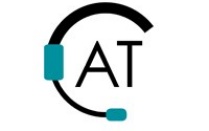Step 3.7
Refine process and optimize quality of research results.
Primary findings
Secondary findings
Primary findings
Barriers
Collaboration is a challenge because managers are pressed for time, reluctant to give over control, and accustomed to working in silos.
Non-experimental study
(View full citation)
Research agendas about open innovation often stay within OI and fail to leverage knowledge in other disciplines like marketing or engineering.
Literature review findings
(View full citation)
Explorative research provides greater opportunities but requires more resources and presents higher risk to businesses.
Case study analysis
(View full citation)
Informal knowledge sharing platforms lack the predictability and organization of formal systems with regards to management goals like regulating participation and leveraging connections.
Literature review and case study.
(View full citation)
Carriers
Best practices must evolve over time to incorporate successful innovations.
From comparison of two case studies.
(View full citation)
Tips
Research execution: Face-to-face engagement with stakeholders and active participation in community-based activities can be effective KT strategies.
Applying integrated KT in Mental Health research.
(View full citation)
Secondary findings
Carriers
It is important to communicate research findings in a manner that can influence stakeholders. Quality and accessibility factors play important roles.
Source: Casebeer (2000); McColl (1998). In: Bowen, S., Martens, P. & The Need to Know Team (2005)
